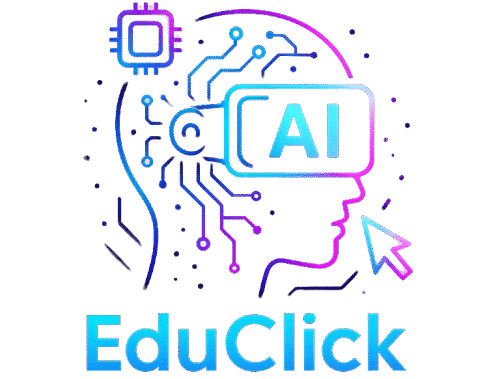The Rise of AI-Powered Personalized Learning Platforms in 2025: Transforming Education as We Know It
In the midst of a rapidly changing world, education remains an anchor of stability and growth. Imagine a future where your learning experience is no longer defined by a one-size-fits-all approach but tailored precisely to your unique needs and aspirations. This vision is not a distant dream; it is the reality unfolding before our eyes. As technology continues to redefine the boundaries of what’s possible, AI-powered personalized learning platforms stand at the forefront of this transformation. This article invites you on a journey to explore the dynamic world of educational technology trends, where personalized education in 2025 is shaping the future of how we learn, adapt, and succeed.

Reflect on your own educational experiences. Perhaps you remember sitting in a classroom, trying to keep up with a pace that didn’t quite fit your own. Maybe it was too fast, leaving you scrambling to catch up, or too slow, leaving you disengaged. You are not alone. Traditional educational models often struggle to meet the diverse needs of learners. Enter AI-powered learning platforms: a beacon of hope that promises to change this narrative. These platforms embrace the uniqueness of each learner, empowering you to thrive in an environment that adapts to your pace, interests, and goals. How would your educational journey have differed if every lesson was crafted just for you?
As we delve deeper into the world of personalized education 2025, consider the role you can play in this new era of learning. Whether you are a student eager to make the most of your education, a parent passionate about your child’s growth, or an educator seeking innovative tools to enhance your teaching, AI-powered platforms offer opportunities like never before. The emotional connection you have to your learning path is profound and deeply personal, and these advancements promise to nurture and support that connection, making education more meaningful and engaging for everyone involved.
Understanding AI-Powered Learning Platforms
What Are AI-Powered Learning Platforms?
AI-powered learning platforms are sophisticated systems that utilize artificial intelligence to create tailored educational experiences. These platforms analyze data from users to adapt content, pace, and learning paths to suit individual needs. By leveraging machine learning algorithms, they can predict what a learner needs and adjust accordingly.
The Role of AI in Personalizing Learning
AI technology analyzes vast amounts of data to understand a learner’s strengths and weaknesses. This analysis allows platforms to provide content that challenges each student appropriately, ensuring that learning is neither too easy nor too difficult. For example, if you struggle with a particular math concept, the platform can suggest exercises that reinforce your understanding.
Benefits of Personalized Education
Personalized education offers numerous benefits:
- Increased engagement: With content tailored to your interests and pace, staying engaged is easier.
- Improved retention: Learning materials that resonate with personal experiences lead to better retention rates.
- Empowerment: Personalized paths empower you to take control of your learning journey.
The Impact of Educational Technology Trends in 2025
Adapting to Learner Needs
Educational technology has evolved significantly, with AI at its core. In 2025, platforms adapt not only to your academic needs but also to emotional and social ones, providing a holistic learning experience. This adaptability ensures that every learner receives the support they need to excel.
Enhanced Collaboration and Communication
AI-powered platforms foster collaboration among students, teachers, and parents. Features such as real-time feedback and virtual group workspaces make communication seamless. Imagine working on a project where your teammates can contribute ideas instantly, regardless of their physical location.
Global Reach and Accessibility
One of the most profound impacts of AI-powered learning is its ability to transcend geographical barriers, making education accessible to anyone with an internet connection. This democratization of education means that learners from diverse backgrounds and locations have equal opportunities to benefit from personalized learning.
🎥 Vídeo complementar sobre o tópico
How Adaptive Learning Platforms Are Shaping the Future
Real-World Applications of Adaptive Learning
Adaptive learning platforms are being integrated into various educational settings, from K-12 classrooms to higher education and corporate training. By continuously analyzing performance data, these platforms provide personalized feedback and resources to accelerate learning.
Examples of Successful Implementations
Several institutions have successfully implemented adaptive learning solutions. For instance, Arizona State University has integrated adaptive systems into its curriculum, leading to improved student performance and retention rates. Such examples demonstrate the potential of AI in revolutionizing education.
Challenges and Solutions
Despite their benefits, adaptive learning platforms face challenges, such as data privacy concerns and the need for adequate teacher training. Addressing these issues involves implementing robust security measures and providing educators with the skills necessary to effectively use AI tools.
Personalized Education 2025: Opportunities and Challenges
Opportunities for Educators
Educators are at the forefront of this transformation, with AI-powered platforms offering new tools to enhance teaching. By personalizing instruction, teachers can focus on facilitating deeper learning experiences and fostering critical thinking skills among students.
Challenges in Implementation
The shift to AI-powered platforms is not without its hurdles. Challenges include technological infrastructure, cost, and resistance to change. Overcoming these challenges requires strategic planning, investment, and a willingness to embrace new methodologies.
Navigating the Ethical Landscape
As AI continues to permeate education, ethical considerations must be addressed. Ensuring transparency in AI processes, safeguarding data privacy, and promoting equitable access are essential to maintaining trust in these platforms.
The Future of AI-Powered Learning: What Lies Ahead?
Predictions for the Next Decade
Looking ahead, AI-powered learning is poised to become even more integral to education. Predictions include more personalized and immersive experiences, with the integration of technologies such as virtual and augmented reality to further enhance engagement.
Innovative Trends to Watch
Emerging trends include the use of AI in lifelong learning and skills development, as well as the integration of AI with other technologies like blockchain for credential verification. These innovations will shape how education is delivered and perceived.
Preparing for a New Educational Paradigm
As we move toward a new era of education, it’s crucial to prepare for the changes AI will bring. This preparation involves embracing flexibility, fostering innovation, and ensuring that educational policies keep pace with technological advancements.

Frequently Asked Questions (FAQ)
What are AI-powered personalized learning platforms?
AI-powered personalized learning platforms use artificial intelligence to tailor educational content to individual learners’ needs. These platforms analyze data such as learning patterns, preferences, and performance to customize the learning experience. By doing so, they provide personalized pathways that cater to the unique strengths and weaknesses of each learner, enhancing engagement and retention.
How does AI enhance personalized education?
AI enhances personalized education by continuously assessing and adapting to the learner’s progress and preferences. It uses algorithms to suggest relevant content, modify difficulty levels, and offer instant feedback. This dynamic adjustment allows learners to progress at their own pace and focus on areas where they need improvement, leading to a more effective and individualized learning experience.
What are the benefits of adaptive learning platforms?
Adaptive learning platforms offer several benefits, including improved learner engagement, higher retention rates, and enhanced academic performance. By personalizing content to fit the learner’s current knowledge level, these platforms ensure that students are challenged appropriately. Additionally, adaptive platforms provide educators with valuable insights into the learning process, enabling them to support students more effectively.
Are there any challenges associated with AI-powered learning?
Yes, AI-powered learning faces challenges such as data privacy concerns, the need for extensive teacher training, and the potential for bias in AI algorithms. Overcoming these challenges requires implementing robust security measures, developing ethical AI practices, and ensuring educators are equipped with the skills needed to integrate AI tools effectively into their teaching practices.
How can educators benefit from AI-powered platforms?
Educators benefit from AI-powered platforms by gaining access to tools that personalize instruction and provide deeper insights into student learning. These platforms automate routine tasks, freeing educators to focus on facilitating critical thinking and collaborative activities. By tailoring lessons to individual student needs, teachers can enhance learning outcomes and foster a more engaging educational environment.
What does the future hold for personalized education in 2025?
The future of personalized education in 2025 promises continued innovation and integration of advanced technologies. We can expect more immersive and interactive learning experiences, supported by AI, virtual reality, and other emerging technologies. These advancements will further optimize educational outcomes by offering more engaging and tailored learning environments, preparing students for the demands of a rapidly evolving world.
How is AI making education more accessible?
AI is making education more accessible by removing geographical and financial barriers. Learners from diverse backgrounds can access high-quality educational resources online, regardless of their physical location. AI-driven platforms offer personalized learning experiences at scale, ensuring that students from all walks of life have the opportunity to learn and succeed according to their potential.
What role does AI play in collaborative learning?
AI plays a significant role in collaborative learning by facilitating communication and interaction among learners, educators, and parents. It enables real-time feedback, collaborative projects, and peer-to-peer learning opportunities. AI-driven tools also allow for the creation of virtual classrooms and study groups, enhancing the social aspect of learning and encouraging teamwork.
Conclusion
In today’s fast-paced world, the rise of AI-powered personalized learning platforms marks a pivotal moment in the evolution of education. By harnessing the power of AI, these platforms are transforming how we learn, offering personalized and adaptive experiences that cater to individual needs. This shift not only enhances educational outcomes but also empowers learners to take control of their educational journeys.
As we look to the future, it is crucial for educators, students, and policymakers to embrace these changes and leverage the benefits they bring. By fostering an environment that supports innovation and addresses the challenges of implementation, we can ensure that AI-powered learning continues to thrive and make education more accessible, engaging, and effective for everyone.
As we stand on the cusp of this new era in education, let us seize the opportunity to shape a future where learning is truly personalized, empowering, and transformative. The time to act is now, and together, we can create an educational landscape that prepares learners for the challenges and opportunities of the 21st century.
Key Takeaways
- AI-powered learning platforms are revolutionizing education by providing personalized and adaptive learning experiences.
- These platforms increase engagement and retention by tailoring content to individual needs and preferences.
- Emerging educational technology trends in 2025 include enhanced collaboration and global accessibility.
- Successful implementation of adaptive learning platforms requires addressing challenges such as data privacy and teacher training.
- The future of education promises more immersive, interactive, and accessible learning environments, powered by AI and other technologies.




